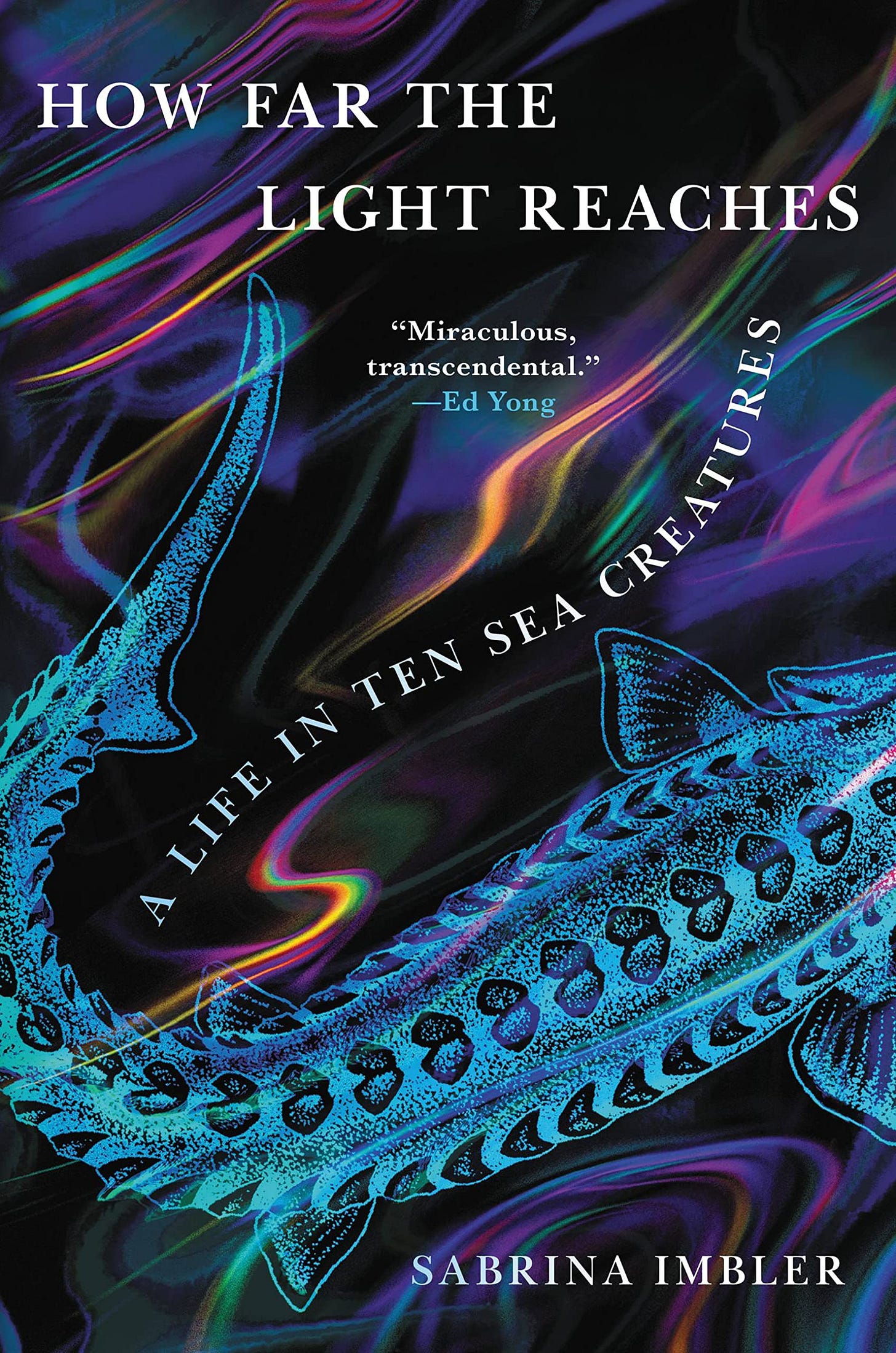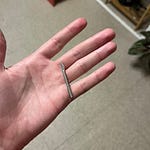When it comes to the humane treatment and conservation of other species (once-discrete concepts that seem to degrade every time we get another one of those U.N. reports), the name of the game is similarity: if we can convince the skeptical that non-human animals are just like us, our case for their mercy grows that much stronger.
By this standard, Sabrina Imbler’s1 How Far The Light Reaches: A Life in Ten Sea Creatures, is a great success. Over the course of this book of essays, Imbler transposes the human body against those of various marine creatures—their grandmother and the Chinese sturgeon, sexual predators and carnivorous sand worms—to reveal the linkage between our wars and their migration, our family lives and their ecosystems, our industry and their disappearance. We (The West?) see the world as an entropic hinterland to be conquered and controlled. With their meticulous prose, whose discipline can’t conceal the enthusiasm of a true lover, Imbler disproves and rebukes the paradigm, leaving, if not a replacement, then room for something else.
This space is where transcendence happens. In “We Swarm,” their essay about Jacob Riis Beach and salp, the blobby marine invertebrate better known as the sea grape, they write about how it feels to experience our own permeability:
The poet Ross Gay asks if joining together all our sorrows—all our dead relatives and broken relationships, all the moments that make life seem impossible—if joining all these big and little griefs together, if that constitutes joy. As I watched the other beachgoers floating amongst the [salp], all of us strangers until this strange, shared moment, I imagined my body chained to their bodies. My sorrows to their sorrows. My survival to their survival.
Light has many moments of beauty, and many more of passion—Imbler’s fascination with the deep’s inner workings is endearing and contagious—but what’s really interesting about it is that Imbler is so good at this showcasing of similarity that they manage to cancel it out. Deposited into the same wading pool as feral goldfish, dancing yeti crabs, and necrotic blue whales, we are given the opportunity to espy resemblance we would not have otherwise noticed. But we are also given the opportunity to see difference up close, to appreciate its magnitude in a way our imaginations could never have conjured. Connection happens, but awe remains.
Find me on Twitter. Get my second novel, X, right here. Also, I’ve had some interviews over the past few weeks. I’ll be in London next week, so find me at Foyles and elsewhere if you want to get a book and say hi.
In case disclosure is warranted, Sabrina—friend of the newsletter—is a friend and a person that I like! And I think they’re a fabulous writer!










